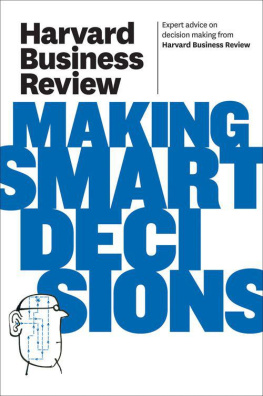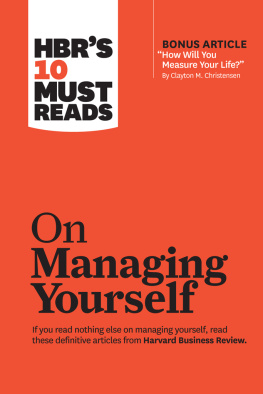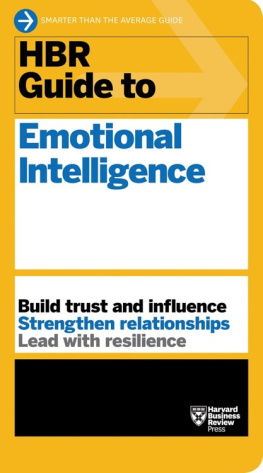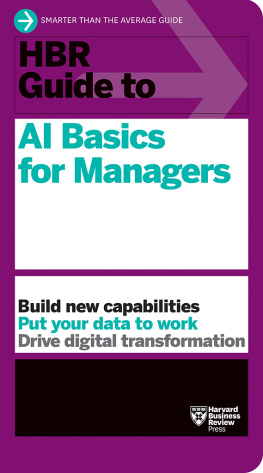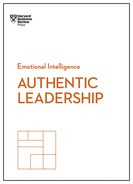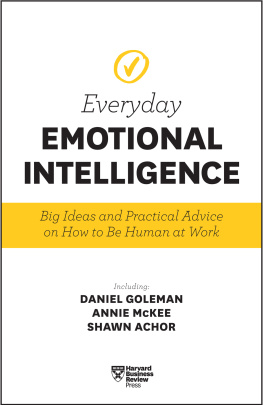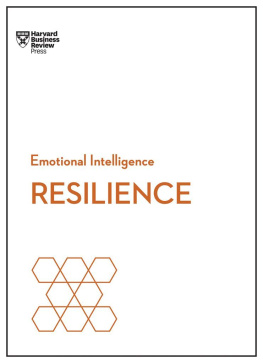Energy and Motivation
HBR EMOTIONAL INTELLIGENCE SERIES
HBR Emotional Intelligence Series
How to be human at work
The HBR Emotional Intelligence Series features smart, essential reading on the human side of professional life from the pages of Harvard Business Review.
Authentic Leadership
Confidence
Dealing with Difficult People
Empathy
Energy and Motivation
Focus
Happiness
Influence and Persuasion
Leadership Presence
Mindful Listening
Mindfulness
Power and Impact
Purpose, Meaning, and Passion
Resilience
Self-Awareness
Virtual EI
Other books on emotional intelligence from Harvard Business Review:
HBR Everyday Emotional Intelligence
HBR Guide to Emotional Intelligence
HBRs 10 Must Reads on Emotional Intelligence
Energy and Motivation
HBR EMOTIONAL INTELLIGENCE SERIES
Harvard Business Review Press
Boston, Massachusetts
HBR Press Quantity Sales Discounts
Harvard Business Review Press titles are available at significant quantity discounts when purchased in bulk for client gifts, sales promotions, and premiums. Special editions, including books with corporate logos, customized covers, and letters from the company or CEO printed in the front matter, as well as excerpts of existing books, can also be created in large quantities for special needs.
For details and discount information for both print and ebook formats, contact .
Copyright 2022 Harvard Business School Publishing Corporation
All rights reserved
Printed in the United States of America
10 9 8 7 6 5 4 3 2 1
No part of this publication may be reproduced, stored in or introduced into a retrieval system, or transmitted, in any form, or by any means (electronic, mechanical, photocopying, recording, or otherwise), without the prior permission of the publisher. Requests for permission should be directed to , or mailed to Permissions, Harvard Business School Publishing, 60 Harvard Way, Boston, Massachusetts 02163.
The web addresses referenced in this book were live and correct at the time of the books publication but may be subject to change.
Library of Congress Cataloging-in-Publication Data
Names: Harvard Business Review Press, issuing body.
Title: Energy and motivation / Harvard Business Review.
Other titles: HBR emotional intelligence series.
Description: Boston, Massachusetts : Harvard Business Review Press, [2022] | Series: HBR emotional intelligence series | Includes index.
Identifiers: LCCN 2022005898 (print) | LCCN 2022005899 (ebook) | ISBN 9781647824365 (paperback) | ISBN 9781647824372 (epub)
Subjects: LCSH: Employee motivation. | Psychology, Industrial. | Engagement (Philosophy) | Vitality.
Classification: LCC HF5549.5.M63 H37 2022 (print) | LCC HF5549.5.M63 (ebook) | DDC 658.3/14--dc23/eng/20220524
LC record available at https://lccn.loc.gov/2022005898
LC ebook record available at https://lccn.loc.gov/2022005899
The paper used in this publication meets the requirements of the American National Standard for Permanence of Paper for Publications and Documents in Libraries and Archives Z39.48-1992.
Contents
Small wins boost your energy and keep you going.
An interview with Teresa Amabile by Sarah Green Carmichael
Instead of forcing a smile, focus on what you want to do.
By Susan David
It takes more than willpower.
By Heidi Grant
Dont just start strongstay strong.
By Elizabeth Grace Saunders
Tackle even the boring, draining, time-consuming, or anxiety-producing tasks on your list.
By Elizabeth Grace Saunders
Find the energy to keep going by having empathy for othersas well as yourself.
By Annie McKee and Kandi Wiens
Energy is contagious.
By Wayne Baker
Discover what gets you charged up.
By Merete Wedell-Wedellsborg
Get real about how you feel.
By Amy Jen Su
Before you go on, you need to stop.
By Shawn Achor and Michelle Gielan
Keep yourselfand your peoplegoing by focusing on three simple needs.
By Susan Fowler
It comes down to self-expression, experimentation, and purpose.
By Dan Cable
Energy and Motivation
HBR EMOTIONAL INTELLIGENCE SERIES
The Power of Progress
An interview with Teresa Amabile by Sarah Green Carmichael
T eresa Amabile, Harvard Business School professor and a coauthor of The Progress Principle, explains the importance of small wins at work in this edited interview with HBRs Sarah Green Carmichael.
Sarah Green Carmichael:What is the progress principle?
Teresa Amabile: Its the surprising impact of simply making forward movement on meaningful work, on the people who are doing the work. My coauthor, Steven Kramer, and I studied nearly 12,000 daily diaries of people working on creative project teams to look at their inner work life. Inner work life is our term for the perceptions, emotions, and motivations that people experience as they react to and make sense of the events in their workday.
What we found was that when peoples inner work lives were more positive, they performed better. We asked ourselves, if inner work life has such an impact on performance, what leads to good inner work life? We found that, of all the things that can drive people in their work and make them feel good about it, the single most important is simply making progress on work that they find meaningful. Thats the progress principle.
That sounds simple, but I think weve all had days when we felt like we werent making much progress. So how much progress do you really need to make to get that feeling?
Surprisingly little. We call this the power of small wins. For example, a computer programmer was trying to track down a bug in a program, and simply solving that little problem led to an extraordinarily positive inner work life that day. Tackling that bug yielded great emotions, very powerful motivation, and positive perceptions of the work environment. Fixing a bug is a seemingly small thing. But we found that 28% of really minorseemingly trivialevents had a strong impact on peoples inner work lives in the positive direction and, unfortunately, in the negative direction, too.
What happens when that negative direction takes hold?
Unfortunately, with all kinds of work events, negative is stronger than positive. The negative inner work life impact of having a setback, for example, is two to three times stronger than the positive impact of making progress. So its particularly important to avoid the minor hassles that can derail peoples work during the average workday.
If youd like to harness the power of these small wins and hopefully avoid some of the hassles, and youd like to feel like youre making more progress, what should you do?
Theres a lot that people can do for themselves to try to harness the progress principle. The most important is to focus. Many people in organizations are under a lot of time pressure, feeling high workload pressure. Its really easy to slip into being on a treadmill. Thats our term for running all the time, feeling like youre juggling a lot of balls that are thrown at you, but not making real progress on the important work thats really going to use your creative brain, and that the organization really needs to become the innovative leader in its field.


